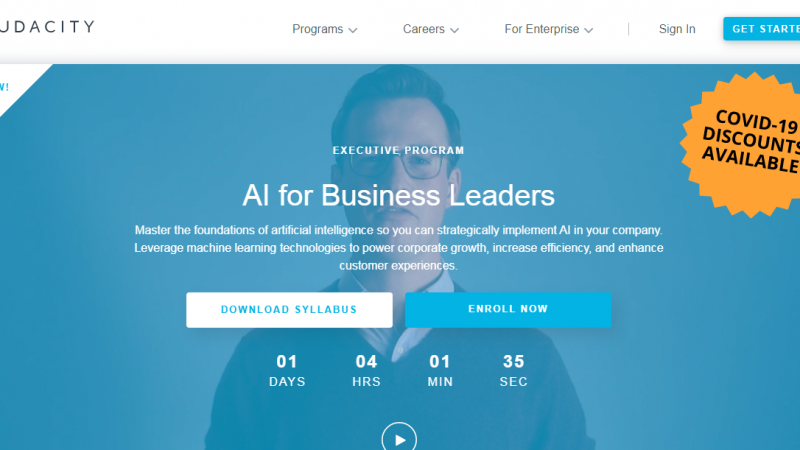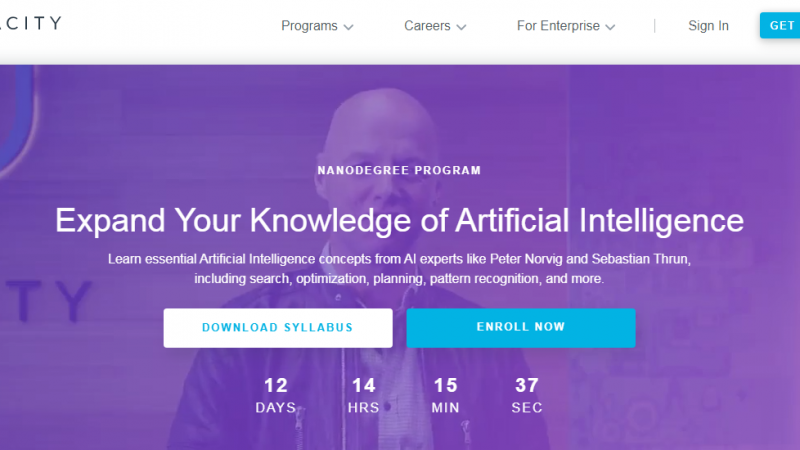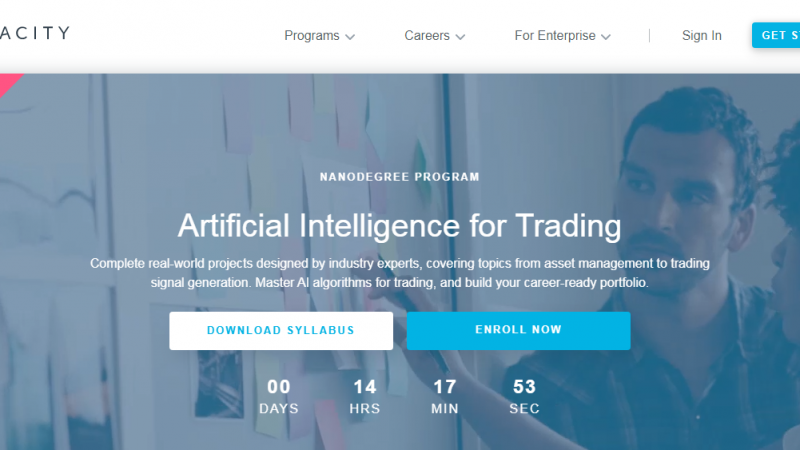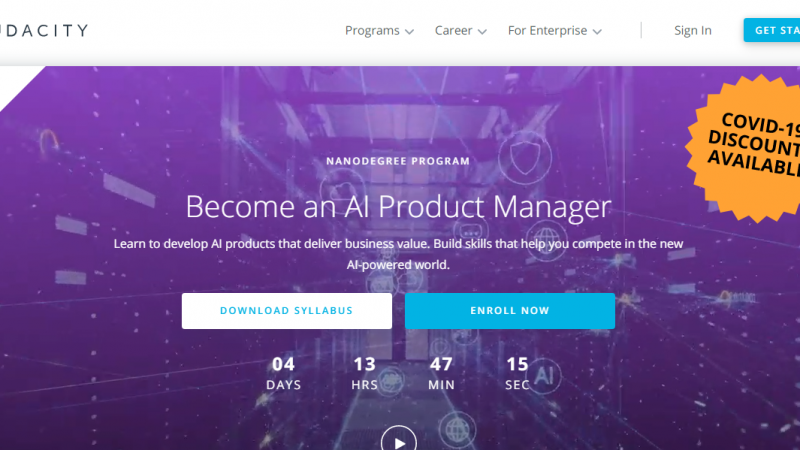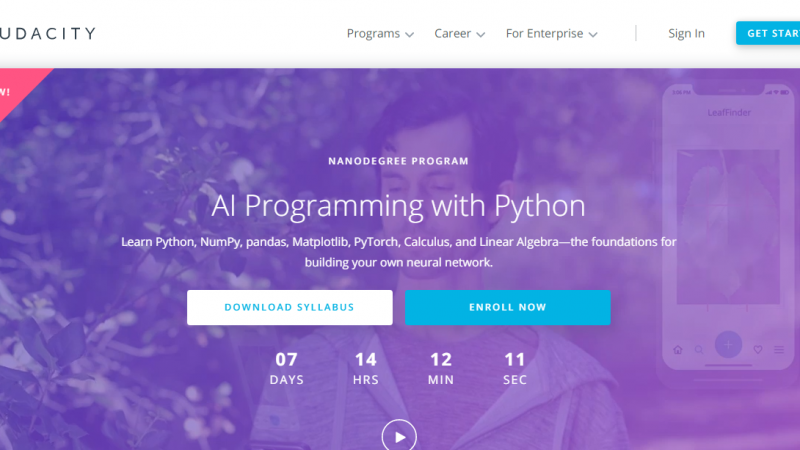11 Reasons why AI is yet to be one the demanding markets in the future

What is AI?
Artificial intelligence is a study of machines which has been created through considerable time and effort-intensive methods, capable of performing tasks similar to the kind of results expected when humans are asked to do them.
What is this intelligence?
It is nothing but the ability to solve problems by analyzing them. Different people have different levels of analyzing power. Similarly, computers or machines can be made intelligent to various levels. It usually involves simulating the intelligence of human beings. But they are not limited to using the intelligence of humans only because many other problems in the world can be solved by simulating the intelligence of other animals as well. For example, dolphins are supposed to be one of the most intelligent animals in the world. They have shown self-awareness and empathy and problem solving, grief, joy as well as teaching skills and playfulness. Some scientists rank dolphins to be as intelligent as elephants.
The start of AI research
The start of the research began after World War 2 when people realized that machines might be capable of evolving by themselves. The first scientist to understand this was Alan Turing, who had the success behind wood building machines and not programming computers. By 1950, there were many types of research going on in the world on the topic of artificial intelligence, however all of them included programming computers.
The famous Turing test
In the 1950s, Alan Turing wrote an article named”Computing Machinery and Intelligence” which talked about all the conditions required to be fulfilled to be called intelligent for a machine. It said if a machine can pretend that it is intelligent, we should reward it by calling it intelligent. Most people agreed except the philosophers.
The test is simple. It involves both the machine and humans interacting with another observer through a mode of conversation, such as typing because the computer does not resemble human beings at the point of the test. The tester will try to prove that it’s human, and the computer will try to prove that it is a human too.
The ultimate goal is to make computers as smart as humans, which can effectively analyze and approach a problem by itself and finally solve it.
Is reaching human-level intelligence that difficult?
Some people believe that such a level of intelligence can be achieved through writing pages after pages of codes. However, many artificial intelligence researchers think that we lack the fundamental idea today. Without figuring out that particular idea, it is impossible to progress in artificial intelligence. So it’s difficult to say when we will reach that pinnacle of success.
The idea of a child
This is not something new. It has been already proposed by scientists even in the 1940s. When observing children learning from all the physical interactions in the world, the idea came very quickly that a machine will learn and grow from its interaction with humans just like a child does, that it would replicate everything that a human does just by interacting with it. Artificial intelligence hasn’t yet reached that level of “learning from observation” yet, but the idea remains the same.
Is computability theory as well as computational complexity the pillars of artificial intelligence success?
Although these theories might be relevant, they do not help in solving the problems with artificial intelligence.
Kurt Gödel in the 1930s, with the help of logician Alan Turing, found out that these algorithms were not suitable to solve every problem in the mathematical domain. What are the best examples of problems that a computer cannot solve is whether the sentence might be a theorem or not. Although most human beings can solve these sorts of problems quite naturally, however, computers weren’t capable yet.
The 1960s showed the rise of the theory of non-deterministic problems shortened to NP by Steve Cook and Richard Karp. All these problems might be solvable, but might take an exponentially long time to be solved depending upon the size.
The most important characteristic of artificial intelligence is to have all the necessary algorithms to solve any particular problem, but that is not all. First, they should be able to figure out what the subdomain of a problem is. The theory dealing with all the difficulties of problems is known as computational complexity. Hence, there is a demand for finding out the solution of this group of problems.
Various branches of artificial intelligence to build a career
- Logical artificial intelligence
This is the subdomain of artificial intelligence that deals with the decision-making process. This branch deals with forming such programs that can effectively figure out the various facts and rules governing an environment and how to achieve the goal that has been posed as a problem to it.
- Search
Artificial intelligence has to deal with the various amounts of analysis while predicting the best choice from a large number of choices. The challenge here is to do this more and more efficiently using up fewer levels of memory and resources.
- Pattern recognition
As humans, we are tuned to observe and figure out the patterns. For example, our minds are tuned to recognize patterns in various places. We tend to find out human faces on many paintings or a car’s headlights etc. even though there are no faces. This is a solid example of pattern recognition. To extend this evolutionary tool to computers is the challenge in this branch. Whenever a software finds a dataset, it has the job of comparing it with a recognized pattern so that it can apply the same for complicated problem solving and figuring out the approach. For example, finding out the pattern of a current chess game and comparing it to a game in the past to analyze the best possible move in less amount of time can be a problem which can be addressed by this branch.
- Representation
An important but often neglected part of analyzing and observing data is how to represent it to the user. This branch deals with exactly that using various mathematical tools.
- Inference
Similar to representation, but an extremely important part of artificial intelligence is how to infer correctly from an observation. Just like after performing an experiment, we must figure out what it implies. This deals with a mathematical deduction to deduce and reason what conclusion to draw from a particular observation.
- Common Sense
One of the challenging aspects of artificial Intelligence is building common sense into it. Despite being constantly researched, it’s extremely difficult to ‘push sense’ in a computer.
- Learning from past experience
This is what we expect from artificial intelligence. Using machine learning, machines can learn from experience as well. Using neural networks, machines can learn what facts their formalisms might represent.
- Planning
This is the most revolutionary branch of artificial intelligence with the help of two things: first, the nature of the environment, and secondly, the end goal. The program should be able to strategize a plan to achieve the goal.
- Epistemology
It is the structured study of the different kinds of studies that are required to solve any problem.
- Heuristics
It is the way of discovering the ideas in a program. It can be used to figure out how far any node is away from a goal inside a search tree.
- Genetic Programming
It’s a technique used to get programs to approach a problem by mating with lisp programs, then selecting the perfect fit from billions of generations.
The various applications of artificial intelligence include:
- Speech Recognition
Speech recognition can be found on every device today, starting from mobile phones to TV sets. Even in certain operating systems like Windows and Mac, voice recognition can perform activities like setting an alarm or opening a web page too.
- Gaming
New open-world games include features where the non-playable characters are learning from the users. This has completely changed gaming in the modern world. Another amazing example is chess. It’s mind-boggling how chess software can look into hundreds of thousands of moves ahead and choose the best one.
- Automated Customer Care
Almost all online markets provide a computer-automated chatbot that listens to everything you type in and figures out exactly which department of professionals to forward the case to unsupervised. Usually, customer support used to cost any company a huge amount of money but today with the help of artificial intelligence, it has effectively cut the cost. A chatbot can help you with questions like Where is my order? or help you with finding a particular product from the company’s site. They can do various other jobs like send you notifications regarding the availability of various products.
So, we have seen the various ways artificial Intelligence can be utilized and understood, what it is, and how it works. In the coming years, AI will have the most demanding jobs in the future. It will kick out many existing jobs, but it will create more jobs than it displaced. We are marching forwards towards a modern and ever-evolving world with the help of AI.
Click here to know about Artificial Intelligence Course
Author Bio:
I am Bharani Kumar Depuru, eminent Digital Transformation Specialist with
over 15+ years of professional experience in Emerging Technologies
consulting. I am an alumnus of IIT & ISB and serve on the board of multiple
companies in devising their strategies.
Alumnus of ISB and IIT with 15+ years of experience working in various capacities with companies including HSBC, ITC Infotech, Infosys, Deloitte. Performing consulting for various companies on Industrial Revolution 4.0 implementation, Data Analytics practice setup, Artificial Intelligence, Big Data Analytics, Industrial IoT, Business Intelligence, Business Management Consulting, etc., are a few of the prime activities performed. Worked across various lines of business including IT, Quality Management, Project Management, IT Service Management, etc.
Notable Clients for whom Data Science, Machine Learning and AI implementations
are performed includes: Coca Cola, Tata Trusts, Trujet, Yatra, Korean Airlines, etc.
Director of 360DigiTMG
Headquartered in India, 360DigiTMG provides professional management and
emerging technologies training across the globe. With international accreditations from world renowned certification bodies, 360DigiTMG is at the forefront of delivering quality education, thereby bridging the gap between academia and industry.
